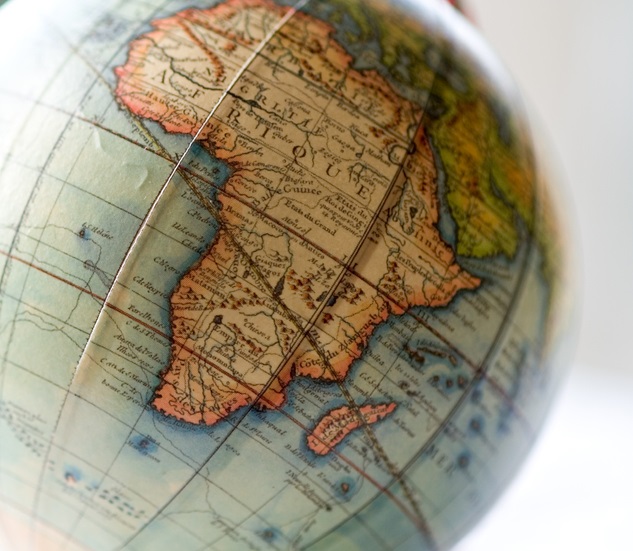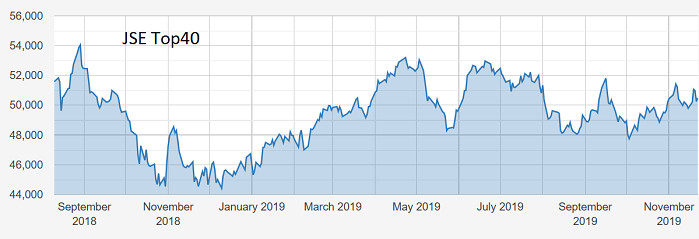Will China make Africa a serious investment opportunity?
It’s the greatest challenge for investors, but our overseas stocks expert discusses great prospects.
27th December 2019 10:51
by Rodney Hobson from interactive investor
It’s the greatest challenge for investors, but our overseas stocks expert discusses great prospects here.

Rodney Hobson is an experienced financial writer and commentator who has held senior editorial positions on publications and websites in the UK and Asia, including Business News Editor on The Times and Editor of Shares magazine. He speaks at investment shows, including the London Investor Show, and on cruise ships. His investment books include Shares Made Simple, the best-selling beginner's guide to the stock market. He is qualified as a representative under the Financial Services Act.
Of all the continents, Africa presents the greatest challenge for investors seeking stable, reliable havens. The continent is full of underexploited resources and a cheap labour force desperate for employment opportunities but a combination of political corruption, lack of infrastructure and reluctance of foreign investors to risk their capital has held most of the continent back.
While it is possible for careful investors to identify opportunities, it is hard to see 2020 producing a dramatic upturn in Africa’s prospects. Such wealth as there is remains unevenly distributed, so there is often only a thin middle or aspiring consumer class to drive economies forward.
Too many countries have self-destructed. Zimbabwe, once a major food exporter but now with a starving population, springs readily to mind. Egypt has so much to offer tourists, from the pyramids to the Valley of the Kings to the beaches of Sharm-el-Sheik but terrorist attacks and political upheaval have driven visitors away. The Congo has untold riches but is torn apart by civil war. Nigeria has substantial oil reserves but comprises an uneasy alliance of disparate regions.
Africa has never quite managed to move on from the colonial era, when European countries thought they were entitled to their own spheres of influence. Now a new colonial master is making its way stealthily into the continent: China.
The Belt and Road Initiative is a global development strategy adopted by the Chinese government in 2013. The belt is a line of overland corridors while the roads are actually maritime sea routes. The Far Eastern giant has been investing in industries and helping to build infrastructure in countries across Asia and the Middle East and now the initiative has reached Africa. The aim is not altruistic. China has spreading its tentacles in order to tap into resources and build export markets.
The latest beneficiary – or victim if you prefer – is Ghana. The Chinese government will finance rail and road networks to the tune of $2 billion and the first tranche of $649 million has been released. In return China will be granted access to 5% of Ghana’s bauxite, the main source of aluminium.
This has allowed Ghana’s Finance Minister Ken Ofori-Atta to promise to boost spending by 21%, including more infrastructure projects. He also announced plans to raise $3 billion in the bond markets. Critics fear that Ghana is being saddled with debt that it will be unable to service and repay. The country’s debt stands at about 63% of GDP and is not likely to drop in the foreseeable future.
The dilemma is replicated around Africa. Most countries on the continent need aid to develop their economies but these high-profile deals mostly fail to filter down to the ordinary populace. African governments have an unfortunate record of squandering the benefits, either through corruption or inability to make the best of the opportunity.
The Chinese do not insist that their investments should produce lasting benefits for the general populace. Their prime concern is what China can get out of the deal. Investors should therefore work on the basis that this programme will close rather than open up new investment opportunities.
There is still really no credible alternative in Africa for private investors to South Africa. Despite its problems in the post-colonial age, with high crime rates and grinding poverty, it has made a decent fist of adapting to democracy, it has substantial and profitable business and it has a reputable stock exchange in Johannesburg, the oldest and largest in Africa with 400 companies listed.
You can find the full list at African Markets.com.
The JSE has ambitions to become a fully integrated African exchange catering for investments and the raising of capital across the continent with listing, trading, clearing and settlement services.
- Mining sector stock tips for 2020
- Accessing emerging markets can be difficult. These ii Super 60 recommended funds make it easy
Although it has been arguably the best performer in Africa in the 21st century, the South African economy hardly sparkles like the diamonds it is famous for. A report issued by the International Monetary Fund in late November predicted that growth would remain subdued. The increase in the working age population, which should be a boon to the economy, is likely to lead only to more unemployment, poverty and inequality in a country with a poor record in creating jobs. Unemployment is at a 16-year high of 29%.

Source: interactive investor Past performance is not a guide to future performance
Economic growth is forecast at 0.6% in 2020, remaining below the growth in population for the sixth consecutive year, a result of stagnant private investment, weak exports and declining productivity.
South Africa also suffers from a high level of government debt, exacerbated by fiscal deficits and low growth in GDP, factors that have led the IMF to call for urgent economic reforms in South Africa.
The Johannesburg Stock Exchange, like the London Stock Exchange, has two boards and, also as in London, most investors should concentrate on the main board as the junior AltX market is more risky.
A large number of major companies have dual listings on other exchanges. These generally are multinational firms with a more solid trading record and should be preferred by private investors. For example, Old Mutual (LSE:OMU) is based in Cape Town and is listed on stock exchanges in Johannesburg, Zimbabwe, Namibia and Botswana but is also quoted in London.
For UK investors, a London listing removes the foreign exchange risk: over the past nine years the South African rand has nearly halved in value against the pound, from 10p at the start of 2011 to 5.4p now.
If you do want to invest directly in South Africa, the Top 40 is the best-known index. As its name suggests, it covers the 40 largest companies listed on the JSE and is the one most investors use to monitor the performance of the exchange. Alternatively, the All Share index includes some 150 JSE-listed companies and is the largest index in terms of size and overall value covering the exchange.
Rodney Hobson is a freelance contributor and not a direct employee of interactive investor.
These articles are provided for information purposes only. Occasionally, an opinion about whether to buy or sell a specific investment may be provided by third parties. The content is not intended to be a personal recommendation to buy or sell any financial instrument or product, or to adopt any investment strategy as it is not provided based on an assessment of your investing knowledge and experience, your financial situation or your investment objectives. The value of your investments, and the income derived from them, may go down as well as up. You may not get back all the money that you invest. The investments referred to in this article may not be suitable for all investors, and if in doubt, an investor should seek advice from a qualified investment adviser.
Full performance can be found on the company or index summary page on the interactive investor website. Simply click on the company's or index name highlighted in the article.
Disclosure
We use a combination of fundamental and technical analysis in forming our view as to the valuation and prospects of an investment. Where relevant we have set out those particular matters we think are important in the above article, but further detail can be found here.
Please note that our article on this investment should not be considered to be a regular publication.
Details of all recommendations issued by ii during the previous 12-month period can be found here.
ii adheres to a strict code of conduct. Contributors may hold shares or have other interests in companies included in these portfolios, which could create a conflict of interests. Contributors intending to write about any financial instruments in which they have an interest are required to disclose such interest to ii and in the article itself. ii will at all times consider whether such interest impairs the objectivity of the recommendation.
In addition, individuals involved in the production of investment articles are subject to a personal account dealing restriction, which prevents them from placing a transaction in the specified instrument(s) for a period before and for five working days after such publication. This is to avoid personal interests conflicting with the interests of the recipients of those investment articles.